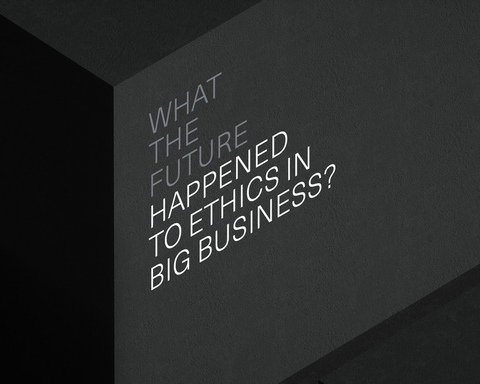
Written by
Published
Category
Key topics
As recent policy announcements by major world governments have made clear, sustainability is no longer just a PR stunt: it’s a recognition of stark reality
For more than two centuries, coal and other fossil fuels have driven global economic growth, from the Industrial Revolution of the late 1700s to the development of emerging markets, particularly across Asia, today. But the days of ‘dirty’ fuel may be numbered. In many countries, fossil fuels from crude oil to natural gas are slowly being deserted in favour of more sustainable and renewable energy sources, such as solar, wind and tidal power.
The governments of Britain and France this summer pledged to end the sale of petrol and diesel cars in their countries by 2040, while China is expected to set a deadline for automakers to end sales of fossil-fuel-powered vehicles in the world’s largest market for automobiles. Norway and the Netherlands, meanwhile, are considering other ways to kill fossil-fuelled cars. The incoming bans on internal combustion engines will force global manufacturers to focus on introducing more zero-emission electric cars to help curb carbon emissions and clean up smog-choked major cities. Volvo has said it will stop making petrol-powered cars and go all-electric.
Companies are part of the problem, and therefore part of the solution. Even though world leaders like Donald Trump have cemented their fossil fuel policies, with the US President controversially vowing to pull out of the global Paris climate accord, the supply of natural resources is limited.
Put simply, as more people live longer, the human population uses more resources
The Food and Agriculture Organisation of the United Nations predicts that, by 2025, 1.8 billion people will be living in regions with absolute water scarcity. In 2014, BP predicted the world had only enough oil left to see it through to 2067 – but that as early as 2040 daily production would be down to 20 per cent of what we currently consume. The largest reserves of all the fossil fuels are coal, but as China and developing countries continue to increase their consumption, global coal demand will exceed supply in an estimated 114 years.
The rapidly ageing and growing global population causes a capacity problem: supply is not about to meet demand, and this will exacerbate the eventual shortage of our planet’s natural resources. In 2045, there will be nine billion people in the world. Put simply, as more people live longer, the human population uses more resources. This places a greater burden on the Earth’s environment, and contributes to climate change. Both issues are also drivers of macroeconomic and social change, with growing global inequality a key concern.
Given the limited availability of natural resources, the real challenge is that society and industry relies heavily on them. Some industries will be worse affected, particularly oil and gas, which needs to significantly diversify its business model over the next three decades. Some are already doing so. Consider Shell: with the faltering oil price, which has struggled to remain above $50 a barrel, the group has pushed into renewable energy and the electrical chain to tap into the boom in electric vehicles. Shell is already the largest trader of renewable power in the US and has pledged to spend $1 billion a year on clean energy by 2020.
Too often, corporate social responsibility initiatives are there to boost brand value rather than deliver real change
It is not just oil and gas that will need to change as companies across virtually every section of the economy, and indeed society, will be affected. Many manufacturing organisations, for instance, use oil, gas or coal as part of their production processes. In the coming years, these companies will face challenges associated with the availability of these resources, which will affect their price. Manufacturers will need to plan carefully for a transition towards new fuels and new technologies as alternatives to fossil fuel.
If corporations do not embrace the challenge of climate change, they risk going out of business. Not all players will succeed in their shift to sustainability. It is difficult to start innovating if you have not done so for the past 20 years, riding the economic boom brought by fossil fuels. One of the key challenges companies face in achieving their sustainability goals is the availability of human capital that can drive that change. At Imperial Business School, we have strived to educate leaders who consider more than shareholder return. Our MSc Climate Change, Management & Finance is a one-year programme that gives graduates the interdisciplinary skills required in business on issues relating to climate change and sustainability. We also now teach sustainability in our MBA programmes.
Another issue corporations face in becoming sustainable is leadership buy-in. Too often, corporate social responsibility initiatives are sidelined and unconnected to the wider group business model. They are there to boost brand value – a PR stunt – rather than deliver real change. That is starting to change, however.
It is difficult to start innovating if you have not done so for the past 20 years
Today there is more recognition that companies can be both profitable and socially and environmentally sustainable. Organisations such as Unilever are implementing triple bottom lines: people, profit and planet. True corporate sustainability creates long-term value that enables companies to capture new revenue growth opportunities and minimise risk, translating into a smarter business model.
The trap organisations often fall into is thinking sustainability will deliver such immense benefits in the short term, providing a boost to next quarter’s results. It is in fact a long-term game, requiring a change in how decisions are made. Given the breadth of opportunities available, companies should prioritise opportunities to generate revenue, reduce costs, and enhance their reputation. Sustainability is a journey companies must undertake tentatively and strategically. If they do not, we risk exacerbating inequality between regions and creating negative effects on mortality, crime, energy demand and the labour market.


